TED ( Technology, Entertainment, Design) is an annual event that brings together the world’s leading thinkers and doers to share ideas that matter in any discipline- technology, entertainment, design, science, humanities, business, development.
TED created TEDx, a program of local, self-organised events that bring people together to share a TED-like experience.
A major part of my time recently has been spent in doing humanitarian work while await being sucked up into the corporate world. The 1st weekend of February 2017 would always have a place in my heart, I attended the TEDx West Africa Organizers Workshop and part of TEDLagos, It was fun and enlightening. My understanding of TED was expanded, here are a few things I didn’t know before about TED that I got to know.
Brand
The Brand is more powerful than I knew, I had been a fan of TED having watched many talks but I found out that you can’t really understand the power and influence of TED by just watching the videos, you need to probably organize one or hear the stories of what is happening around the world through TED. There are many measures put in place to ensure that the brand isn’t diluted. Precise logo font and size, the TED or TEDx logo must always be bigger than that of any sponsor if they appear on the same page or surface… and other I’d be sharing later. TEDLagos 2017 is an example of how powerful the brand is as all tickets were ‘sold out’ within 6 hours of the registration portal being opened despite the fact that most people didn’t know who the speakers were.
Event
TEDx, x stands for independently organized. so it means that an individual gets a license to organize a TEDx event in their community, the license is free and only lasts for a year after which you can choose to renew or let it go, all you need to do is to submit an application that’s convincing enough to convey that you’re capable of organizing an event and your community is distinct from other maybe nearby communities that have TEDx too. For example, in Lagos, we have TEDxSurulere, TEDxIkeja, TEDxGbagada, TEDxUnilag…
Only events where the primary licensee has attended TED can have more than 100 attendees, so the rationale this is that the organizer needs to have experienced the main event for him/her to be able to replicate such an experience for a larger audience.
TEDx events can only be a 1-day length event. There are no panels, workshops or Q &A. An interesting thing I learned was the during TED events, the break periods are almost as long as the talk sessions because they want the participants to have enough time to interact with each other on the ideas shared during the talk sessions.
Speakers
The ideal way to curate speakers is to generate ideas first then look for who would be in the best position to speak on the ideas, not getting a (popular) speaker and trying to get him/her to talk about an idea.It’s really about the idea. Prior to the event, the speaker’s talk is reviewed and adjustments are made to ensure that the talk is TED standard, so most talks you see aren’t solely the brainchild of the speakers, a lot of input from the organizing team and speaker have gone into it. Speakers are taken care of, their transportation and accommodation if need be, however,
Speakers are taken care of, their transportation and accommodation if need be, however, Speakers are not paid, lest it becomes a competition of who can pay the most gets the opportunity to speak and really TED is a non-profit organisation, the speaker should be passionate about his idea and the opportunity to cause change to want to speak for free.
Speakers are not permitted to sponsor the event, so you ask, what if a speaker believes so much in the event and wants to sow a seed? He should keep it or better still sow and forfeit the opportunity to speak for that event (the speaker could speak at the next event), it could be misinterpreted that the speaker is paying to speak.
Sponsors Partners
Sponsors are seen as partners, the idea is for them to buy into the vision of TEDx and contribute towards it, it doesn’t have to be always cash, it could be in kind, just something significant to ensure the program is a success. Sponsors aren’t allowed on stage i.e to speak and cannot influence your event.
Sponsors aren’t allowed to advertise or market their products during the event, that’s not why we’re here, although the room is given to showcase your products or give participants an opportunity to participate in a demo session during the breaks. And did I almost forgot to mention, You get your sponsors yourself leveraging on the TED brand and your network ( you’re not allowed to approach sponsors of TED without the express permission of TED)
Talk
The talk should be centered on an idea and not the speaker. The talk is to last a maximum of 18 mins, a short time is enough to convey your idea. Audio is the most important thing in the talk, of what value is a video without audio? Please see TED’s secret to great public speaking, How to TEDx: How to give a great TEDx Talk
Volunteers
It’s called volunteer for a reason, there’s no pay. I have a couple of friends who hail me regularly that I must be swimming in major money because I volunteer for TEDx oh well if only they understood volunteer. Ideally, volunteers are persons passionate about the power of ideas who want to see people informed and inspired. So what do you gain? I must say, that asides the discipline and one or two skills learned in organizing the event, every event provides the opportunity to network. For an event like TEDx where the people attending understand the power of ideas, it’s most certain that you’d meet someone who could help in sponsorship or mentorship or collaborate with you.
In all, I believe the main purpose of the event which is to spread ideas that would inform and inspire people is enough motivation and seeing people who acted on what they learned at your event accomplish great feats is enough reward for me.
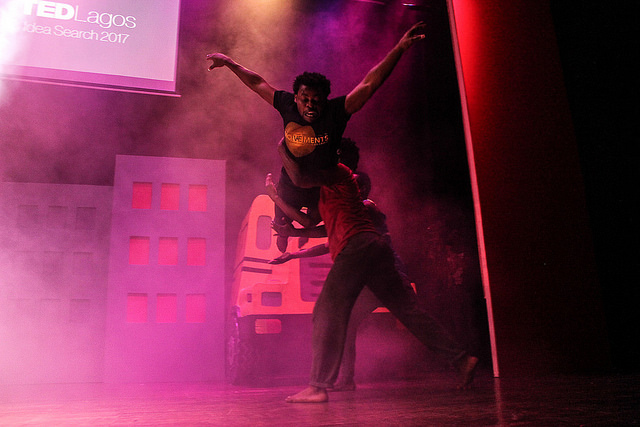
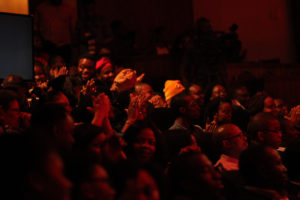
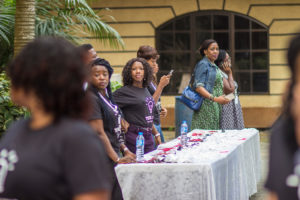
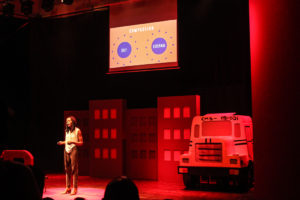
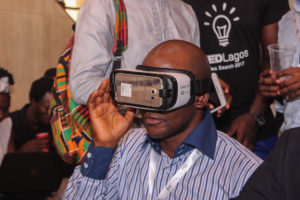
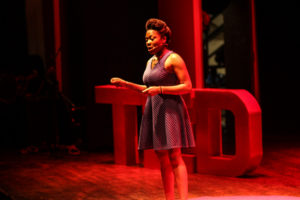
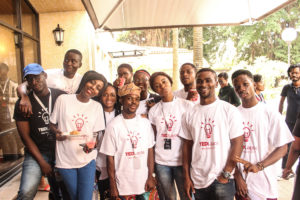
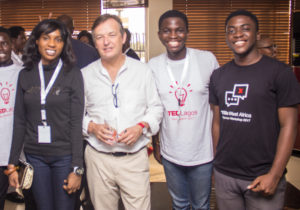
Leave a Reply